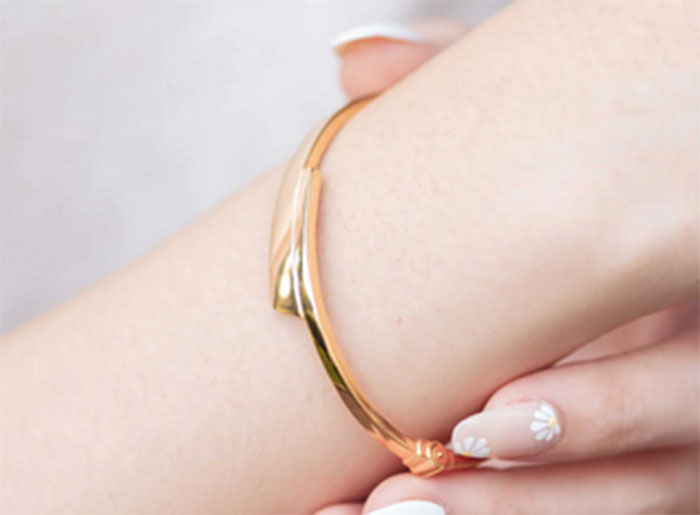Modern Technology in the Jewelry Industry – From pearl shells 150,000 years ago to laser cut diamonds and digital ring gauges, it can be said that technology has played a huge role in the development of the jewelry industry.
Modern Technology in the Jewelry Industry

swarovskijewelry – Technology and the jewelry industry have gone hand in hand for thousands of years, changing the way jewelers produce, advertise and sell their products. Today, rapid technological developments create possibilities that surpass the wildest dreams of craftsmen centuries or even decades ago.
Modern technology is influencing the world of fashion and the jewelry industry in many interesting ways. New advances and discoveries continued to be made and jewelers began to embrace them. Here are 9 ways technology is changing the world of jewelry.
3D PRINTING IN JEWELRY
Although the jewelry industry has used 3D printing for years, this modern technology is now becoming more affordable and widely available. The wider availability of this technology has offered jewelers the ability to create custom jewelry more easily.
3D printing also makes it easier for jewelry manufacturers to create more detailed and complex designs compared to traditional designs and manufacturing methods. Combining this technology with computer-aided design (CAD/CAM) has created even greater possibilities, as you can see below.
ADVANCED CAD/CAM TECHNOLOGY
CAD technology is changing the way jewelry is designed, especially when it comes to unique and special jewelry pieces. In addition to CAD/CAM’s ability to create rare items, jewelers can also mass-produce designs that would take longer to create by hand.
Additionally, CAD/CAM helps reduce human errors and create jewelry with greater precision. Once CAD/CAM technology creates a digital file with perfect dimensions, the jeweler can use the design to create a 3D printed jewelry model in thermoplastic wax. The metal selected by the customer is melted and cast into a 3D mold. Once set, the jeweler adds the customer’s selected gemstones to exact specifications before putting the finishing touches on the jewelry.
This process eliminates many of the traditional steps in jewelry making. The result is faster production times, lower labor costs, and the ability to offer customers more individualized service.
DEVELOPMENT OF LASER TECHNOLOGY
Laser technology has also had an impact on the design and manufacture of jewelry. Laser-powered tools allow jewelers to create much more complex designs than by hand. Additionally, lasers enable more precise gem shaping and cutting, resulting in gems with fewer human-caused defects, but more beautiful and rarer.
Baca juga : Artificial Intelligence is Revolutionizing the Jewelry Industry
DEVELOPMENT OF ROBOTICS
Like 3D printing and laser technology, robotics has been used in the jewelry industry for some time. And like the other two modern technologies, it is becoming more affordable and commonplace. Although robotics has several design applications, the real impact of this modern technology on the jewelry industry is in the manufacturing process.
Thanks to robotics, it is now easier and cheaper for jewelers to create custom jewelry for customers. By using robots, jewelers can also create designs that are much more complex than traditional manufacturing methods.
ADVANCED NANOTECHNOLOGY
Nanotechnology allows users to manipulate materials at the molecular and even atomic level. This technology has great potential for the jewelry industry because jewelers can create devices and materials with unique properties.
A good example is the development of new types of gems and diamonds. Nanotechnology allows jewelers to create gems that have never been seen in nature. Thanks to this technology, jewelers and gemologists have been able to develop unique diamonds that are perfect, brighter, and harder than gems formed deep underground over thousands of years.
INNOVATIVE ELECTROFORMATION
Although relatively new and improved, the creation of electronics has had a major impact on jewelry. This process allows jewelers to use electricity to coat objects with different metals. This process also allowed them to create a new type of metal that was harder and more durable than the metals commonly used in jewelry making.
In addition to these revolutionary applications, electroforming allows the creation and fabrication of more complex jewelry and patterns. custom jewelry that is unique to the customer.
PORT TECHNOLOGY TRENDS
Until recently, the purpose of jewelry was to complement clothing and highlight the wearer’s beauty and/or status. The introduction of wearable technology has enabled jewelers to create jewelry that has greater functionality while enhancing the wearer’s attire.
DEVELOPMENT OF ROBOTICS
Like 3D printing and laser technology, robotics has been used in the jewelry industry for some time. And like the other two modern technologies, it is becoming more affordable and commonplace. Although robotics has several design applications, the real impact of this modern technology on the jewelry industry is in the manufacturing process.
Thanks to robotics, it is now easier and cheaper for jewelers to create custom jewelry for customers. By using robots, jewelers can also create designs that are much more complex than traditional manufacturing methods.
Baca juga : Teknologi Utama Untuk Pembuatan Konten
ADVANCED NANOTECHNOLOGY
Nanotechnology allows users to manipulate materials at the molecular and even atomic level. This technology has great potential for the jewelry industry because jewelers can create devices and materials with unique properties.
A good example is the development of new types of gems and diamonds. Nanotechnology allows jewelers to create gems that have never been seen in nature. Thanks to this technology, jewelers and gemologists have been able to develop unique diamonds that are perfect, brighter, and harder than gems formed deep underground over thousands of years.
INNOVATIVE ELECTROFORMATION
Although relatively new and improved, the creation of electronics has had a major impact on jewelry. This process allows jewelers to use electricity to coat objects with different metals. This process also allowed them to create a new type of metal that was harder and more durable than the metals commonly used in jewelry making.
In addition to these revolutionary applications, electroforming allows the creation and fabrication of more complex jewelry and patterns. custom jewelry that is unique to the customer.
PORT TECHNOLOGY TRENDS
Until recently, the purpose of jewelry was to complement clothing and highlight the wearer’s beauty and/or status. The introduction of wearable technology has enabled jewelers to create jewelry that has greater functionality while enhancing the wearer’s attire.
FUTURE CHANGES FOR THE JEWELRY INDUSTRY
The jewelry industry and its customers have always benefited from technological developments. Thanks to today’s technology, this thousand-year-old industry is developing faster than ever.

